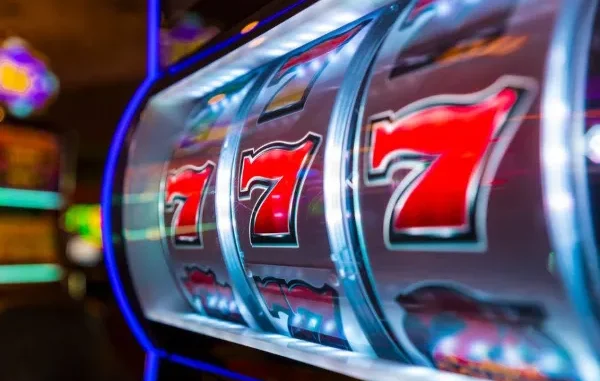
The differing nature of regulations across the globe shows how diverse the gambling culture is. Read the following sections about 10 gambling rules that may blow your mind.
For a hassle-free gambling experience without restrictive laws, Just Casino presents a diverse collection of over 9,500 games from more than 50 top-tier providers. Their attractive black and gold theme creates a visually appealing platform with a generous welcome package of up to $7,777 plus 300 free spins spread across your first four deposits, including 100% up to $500 with 100 free spins on your first deposit.
#1 No Dice Allowed in Japan’s Casinos
Do not expect to find dice games in legal casinos in Japan. Craps and Sic Bo do not have a place in the Japanese gambling culture. Also, Japan has strict anti-gambling laws that, in fact, frown on most forms of gambling.
Moreover, the Japanese government allows gambling organisations to operate only to attract tourists. Japanese citizens are prohibited from entering these establishments. However, they can bet on sports, specifically horse, bicycle, and motor races.
#2 Monopoly Money Can Be Used for Gambling in Canada (Sort Of!)
The Canadian regulatory body for gambling is very suspicious towards cash handling by both the casino and players. Many casinos would operate similarly to social gambling platforms to avoid being targeted by the regulator.
They may receive other currencies but not Canadian dollars. It is no surprise that in 2017, a casino establishment mistakenly took monopoly money from a player. These strict regulations over money handling have raised concerns over the use of counterfeit and novelty bills for gambling in Canada.
#3 In France, You Must Be Smart to Play the Lottery
You don’t necessarily have to be Einstein-kind of smart, but at least be mentally efficient. This rule persisted in the 1800s in France for lottery participation.
The claim is to protect individuals incapable of making informed decisions. Although this exact rule may no longer exist, it still reflects the attitude of the French jurisdiction towards responsible gambling practices.
#4 North Korea Allows Gambling—But Only for Foreigners
To be clear, gambling in North Korea has severe repercussions. However, this regulation applies only to citizens. There is a special reservation for tourists and visiting diplomats.
North Korea allows foreigners to gamble as a way to make a profit. However, the totalitarian government, known for its oppressive views, chooses to protect its citizens from the risks of gambling by criminalising it. Any North Korean caught in such acts may face two to five years of intense labour.
#5 Alabama Bans Playing Cards on Sundays
The Alabama government made it illegal to play cards on Sundays. This odd law may be rarely enforced, but it applies technically to private and public games.
You should lay off the cards and go to mass!
This regulation stems from a history of religious influence on the residents’ social lives in the state. However, people often ignore this rule because there are no real punishments for breaking it. This weird regulation also highlights the diverse history of gambling cultures.
Alternatively, you could enjoy popular digital card games and explore SG slot games any day of the week without worrying about outdated regional restrictions.
#6 Only Churches Can Operate Bingo in Colombia
Churchgoers are having more fun than ever in Colombia. The government legalised playing Bingo, but only in churches and charity events. The aim is to raise funds within religious circles.
However, some organisations take advantage of this rule to run bingo games as major businesses. Since gambling is generally allowed in Colombia, all they have to do is secure a license to provide gambling services from the regulatory body.
#7 In Thailand, Playing Cards at Home Can Get You Arrested
Gambling, except for horse-race bets and government-approved lotteries, is banned in Thailand. For this reason, there have been long-standing issues with illegal and underground gambling in the country.
Therefore, to combat these problems, the 1935 Playing Cards Act prohibits citizens from owning and having more than 120 playing cards without government approval. Moreover, the Thai police frequently arrest tourists in their raids on illegal gambling establishments. So, take note when you next visit Thailand.
#8 Australia Bans’ Winning Celebrations’ in Gambling Ads
Plain ol’ ads only, says the Australian law on gambling advertisements. This regulation prohibits gambling establishments from showing individuals celebrating winnings in their advertisements.
The plan is to prevent Aussies from seeing gambling as a guaranteed means to success. Australian casinos and sportsbooks are mandated to promote excitement and fun opportunities rather than paths to wealth. Deviating from this responsible gambling practice may lead to a platform’s licence withdrawal.
#9 Russia’s ‘Gambling Zones’ Keep Casinos in Remote Areas
In today’s Russia, gambling is not legal everywhere. The government has designated specific zones where it is. These specified areas are usually far from major cities.
This regulation exists to control the social impact of gambling in Russia. Unsurprisingly, the affluent individuals in the country would rather visit other countries to gamble. Citizens often use underground casinos to bypass this weird regulation.
#10 The Vatican’s Secret Gambling Problem
You would imagine the priests were immune to the gambling woes. However, the Vatican City had to explicitly ban gambling when it found that some of its priests were deep in gambling debts.
It gets worse. Some clergy members were convicted of playing at Italian casinos with church funds. However, even after the ban, the problems persist. There have been investigations into multiple gambling scandals in the state ever since.

Leave a Reply